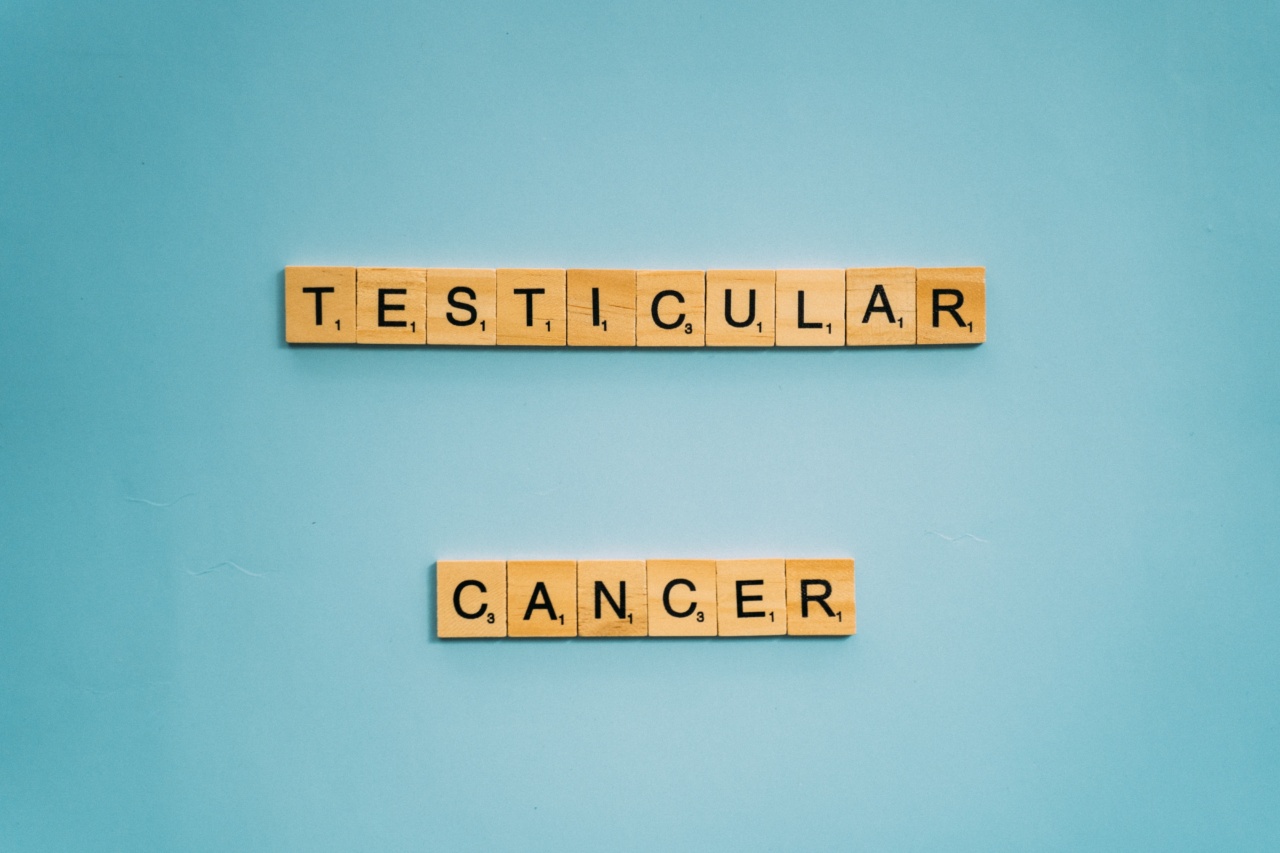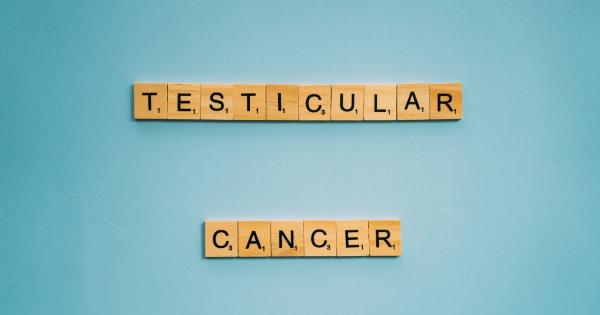Testicular cancer is a type of cancer that affects the cells in the testicles, the male reproductive organs that produce sperm and hormones.
It is relatively rare compared to other types of cancer, but it is the most common cancer in younger men between the ages of 15 and 35. While the exact causes of testicular cancer are not fully understood, there is increasing evidence that genetics play a significant role in its development.
1. What is Testicular Cancer?
Testicular cancer occurs when abnormal cells in the testicles start to divide and grow uncontrollably. These cancerous cells can invade nearby tissues and spread to other parts of the body, such as the lymph nodes, lungs, liver, or bones.
The most common type of testicular cancer is called germ cell tumors, which originate from the cells that produce sperm.
2. Genetic Risk Factors
Studies have shown that certain genetic factors can increase the risk of developing testicular cancer. These factors include:.
a) Family History: Having a close family member, such as a brother or father, with testicular cancer increases the risk of developing the disease.
This suggests that there may be inherited genetic mutations that contribute to its development.
b) Genetic Syndromes: Certain genetic syndromes, such as Klinefelter syndrome and Carney complex, are associated with an increased risk of testicular cancer.
These syndromes result from specific genetic abnormalities that affect multiple organs, including the testicles.
c) Personal History: Men who have previously had testicular cancer are at a higher risk of developing it again in the other testicle. This indicates that some individuals may carry genetic mutations that predispose them to the disease.
3. BRCA Gene Mutations
BRCA1 and BRCA2 are genes that normally help suppress cell growth and prevent the development of cancer. However, when these genes are mutated, they can increase the risk of several types of cancer, including breast, ovarian, and prostate cancer.
Recent studies have also found a link between BRCA2 gene mutations and an increased risk of testicular cancer.
4. Link to Other Cancers
Testicular cancer has been associated with an increased risk of developing other types of cancer, particularly those related to the reproductive system.
Men who have had testicular cancer are at a higher risk of developing prostate cancer, as well as certain types of kidney and bladder cancer. These shared genetic factors between testicular cancer and other cancers suggest a common underlying genetic vulnerability.
5. Genetic Testing
Genetic testing can help identify individuals who are at a higher risk of developing testicular cancer due to genetic mutations.
This testing involves analyzing the DNA to look for specific genetic changes that are associated with an increased risk of cancer. It can be particularly helpful for individuals with a family history of testicular cancer or known genetic syndromes.
6. Implications for Treatment and Prevention
Understanding the genetic factors involved in testicular cancer can have significant implications for treatment and prevention strategies. For example:.
a) Personalized Treatment: Genetic testing can help determine the most appropriate treatment for individuals with testicular cancer. Some genetic mutations have been found to make certain tumors more responsive to specific therapies.
b) Screenings: Individuals with a high genetic risk of testicular cancer can benefit from regular screenings to detect the disease at an early stage when it is more treatable.
This may involve testicular self-exams or regular check-ups with a healthcare professional.
c) Genetic Counseling: Individuals who test positive for genetic mutations associated with testicular cancer can receive genetic counseling.
This can involve discussing the implications of the mutation, reviewing available prevention options, and providing emotional support.
7. Conclusion
While the exact causes of testicular cancer are not fully understood, the role of genetics is becoming increasingly clear.
Genetic factors, including family history, specific gene mutations, and genetic syndromes, can significantly increase the risk of developing testicular cancer. Understanding these genetic factors can help with personalized treatment approaches and preventative measures.
Genetic testing and counseling can play a crucial role in identifying individuals at high risk and providing appropriate guidance for their healthcare.




























